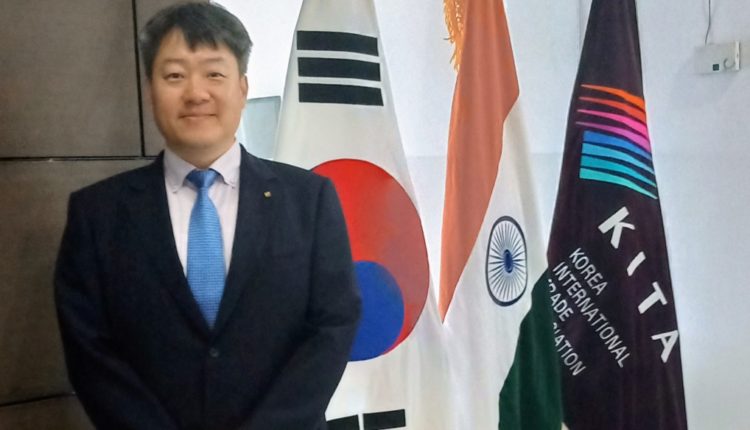[Sunday Special & Exclusive]: Korean e-Book to expose challenges of doing business in India
NEW DELHI: Korean companies are here and many more are contemplating to enter the Indian market to set up their offices and factories.
However, with options like Vietnam, Indonesia, and other East Asian countries at their end, these potential Korean investors are looking at India too but may have some apprehensions about Indian working conditions.
And in order to address these apprehensions in the benefit of Korean companies planning to come to India, the Indian office of Korea International Trade Association (KITA) recently conducted a comprehensive survey and accumulated feedback from the existing Korean companies in India. Basis of this survey, the KITA will come out with an e-book highlighting the challenges of doing business in India by the end of the year.
Established in Korea in 1946, KITA is currently the largest business organization in Korea with over 70,000 member companies,
“We are working on an e-book or guide for Korean businesses for understanding and choosing India as a destination for manufacturing and doing business. It will not be a physical book but an electronic version, to which all the Korean companies will have access to,” KITA’s chief representative and director in India Hee-chul Jung told Asian Community News (ACN) Network recently.
He further elaborates, “But the uniqueness of this book will be that it does not focus on the good things of India but the challenges. Because India can provide what is good about India and other organizations can Google search and find out what’s good about India. Everyone knows India has 1.3 billion population, the abundance of raw material but this booklet will be all about challenges in India, if not the negative points.”
India already hosts about 700 Korean large, medium, small and micro companies, and the number is likely to touch 2000 in the coming years as was claimed by the KITA’s chief during an event in Gurugram.
Also read: The world of Korea is coming to India: Yoo Chang-ho
Though KITA’s mandate is to contribute to the development of the national economy as a private economic organization through the advocacy of the Korean trade industry’s rights and interests, and thereby facilitating global trade, it is also seriously involved in the research work.
“In the month of June and July, we individually visited 60-70 Korean operating all over Indian cities like Chennai, Bangaluru, Pune, Mumbai, and others, and asked them about the challenges they are facing while doing business in India, both in the past and current. We are in the middle of collating the interview results and will come out with the e-book by the last quarter of the year,” Heel-Chul added.
When asked about the kind of issues and problems the Korean companies are facing in India, KITA said these included land acquisition, labour union, import restrictions, and corruption.
Surprisingly, the KITA chief said that the Korean companies have learned to overcome difficulties and manage the affairs.
Some of the observations shared by KITA chief were startling. He said that corruption was a serious issue in India.
“We want to do transparent bookkeeping of our finances but in order to deal with corruption, they (Korean companies) need to find the money. But they (company executives) have to pay from their own pocket or individual bank account. And if they have done it from the company budget its just not make sense and it not possible in the Korean system. There is absolutely no mechanism to allow such expenditure,” asserted Hee-Chul Jung adding that so many Korean companies were approaching KITA with such issues.
Also read: Destination India: India is next China, Vietnam, KITA tells Korean companies
But the important thing is they don’t want their companies to get hurt and strike balance as they don’t want any kind of revenge.
Another lesson learned, though the hard way, by the Korean companies, is that they don’t hire locals in the area.
“Korean companies do not recruit workers from immediate locations. Rather, they would hire people from far away locations and provide them transport facilities like buses even if it’s an hour-long drive as they have a lesser attachment to the locals. But Korean companies also have a very good relationship with the locals and support them in many ways as part of their CSR activities,” said KITA chief.
Other concerns expressed by Korean companies include import regulations for running their facilities.
“Many companies want to use washing agents or solutions with a high content of methyl alcohol for washing machines. And this is what companies in Korea are using but in India, it is not allowed as the contention is that it might be misused. In many factories, they want to use it as it is more durable and better efficient but regulations don’t allow it,” said Hee-Chul Jung.
Also read: India a tough terrain for Korean citizens, make it conducive: Korean Association


